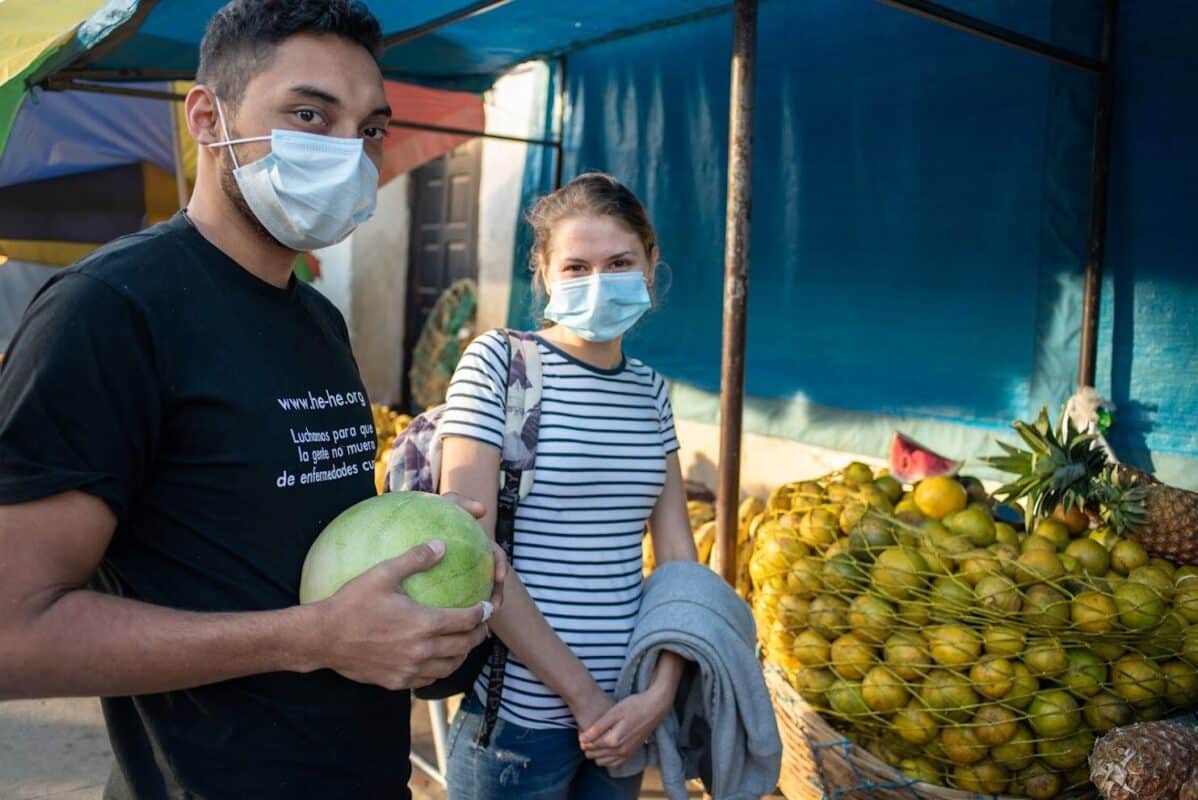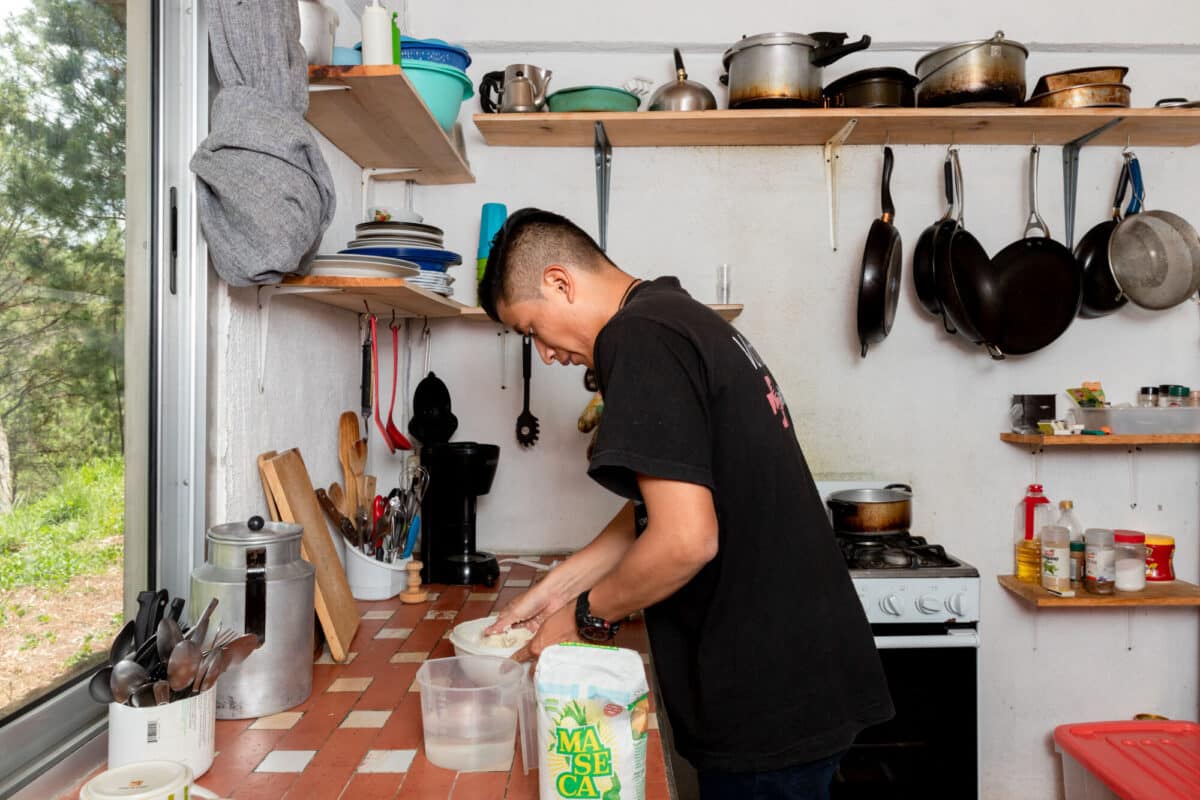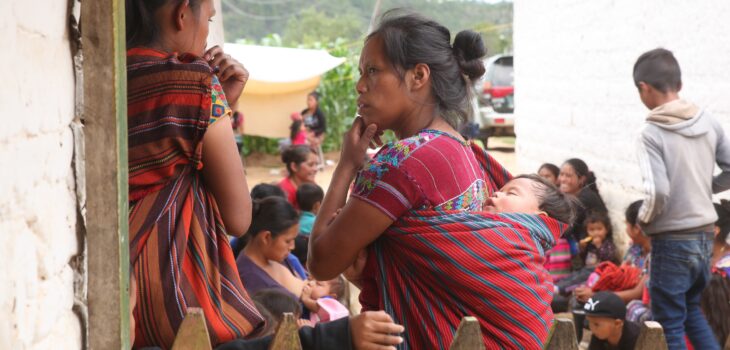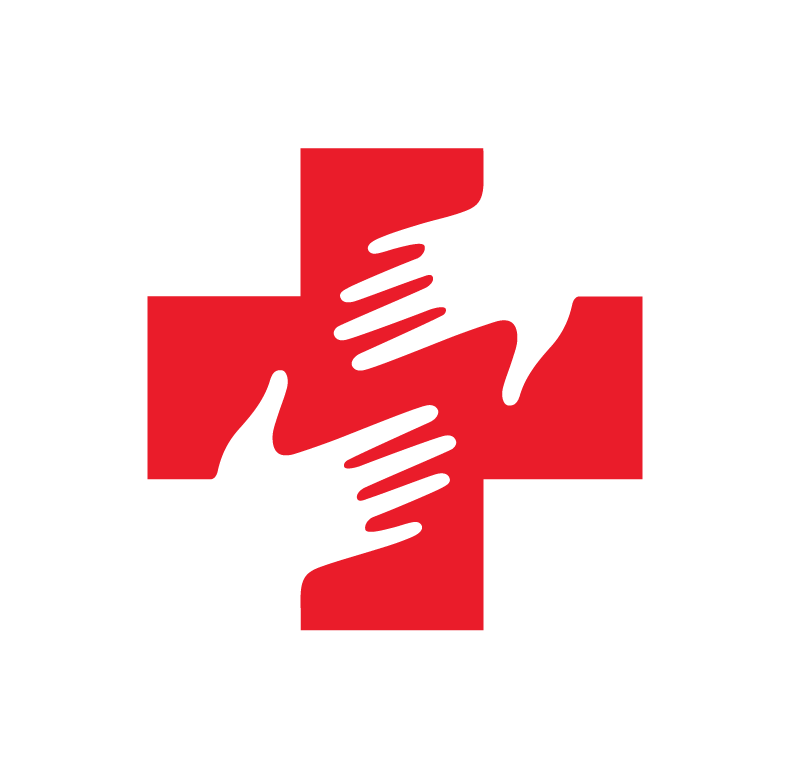
Take a virtual tour of our clinics in Guatemala and Nicaragua, and spend a day with our volunteers.
Mornings start at 6 or 7 am depending on the schedule for the day. Volunteers on breakfast duty get up earlier, while those responsible for washing the dishes have an opportunity to get some more sleep. For breakfast, volunteers usually have oatmeal, crepes, fruit and eggs.
The work day starts at 8 am. While doctors are busy seeing patients, administrators take care of daily chores. They make schedules for the week, fill in cleaning checklists, monitor garbage disposal, keep financial records, and deal with non-medical issues. Due to Covid restrictions, doctors try to receive patients outdoors, and only those in need of serious help are allowed into the clinic.
Lunch time: from 1 to 2 pm. As we remember, volunteers plan ahead, so they know whose turn it is to make lunch for today. However, sometimes the doctor in charge of lunch has a lot of patients. In this case, cooking is done by whoever is free at the time.
The work day ends at 4 pm. When there are no patients after lunch, volunteers clean the clinic, sort medications and carry out inventory counts of the stockroom. There is always plenty of work!
After 4 pm, volunteers have time for themselves. They usually spend it on their hobbies. They go for a run, read books, watch movies or cook. The clinic in Guatemala has Wi-Fi, so there is always an opportunity to chat with family and friends or discuss work issues.

Dinner starts at 7 to 8 pm. The menu usually includes beans, pasta, rice, fruit and vegetables. Volunteers shop for groceries every Thursday. The administrator and one of the nurses go to the market and, depending on the number of volunteers in the clinic, take two to four suitcases for food. They also clean the clinic once a week, and once a month they do a deep clean of all rooms and the area surrounding the clinic. Another important thing is the monthly treatment of the clinic for bedbugs. Volunteers live next to the forest, so insects are a regular occurrence.
The day ends at 10 pm, and until 6 am the clinics are quiet. Doctors may deviate from this schedule only if they need to see a patient on an emergency call.
On weekends, volunteers from the Nicaraguan clinic go to the beach, which is within walking distance. And in Guatemala, they relax by the riverside, drive to the nearest town, or take walks to a nearby volcano.
What do you find the most challenging in the life of our volunteers? Do you think you could follow such a routine? If this sounds like you, it’s time to take a step towards your own future! Apply to become a volunteer at he-he.org.
Last news

The Invisible Weight Women Carry
Fatigue that never goes away. Dizziness that makes walking feel like a chore. Hair thinning, shortness of breath, and a racing heart during everyday activities. For many women, these are not just random symptoms — they are signs of low ferritin.
Learn more
A Powerful Partnership for Women’s Health
When Ecologicasec first reached out to us on Instagram, we couldn’t imagine how meaningful our connection would become.
Learn more
Happy Mother’s Day to our patients!
In Nicaragua and Guatemala, women typically play the leading role in raising the family and looking after children and the household. This is so important, without mothers, nothing would get done!
Learn more
